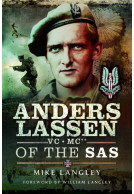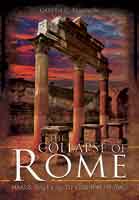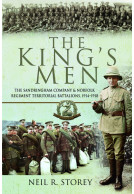1000 Days on the River Kwai (eBook)
The Secret Diary of a British Camp Commandant
Imprint: Pen & Sword Military
File Size: 12.1 MB (.epub)
Pages: 151
Illustrations: 32 black and white
ISBN: 9781473897823
Published: 24th April 2017
In the news
An appearance by the author's daughter, Jean Argles, on BBC One's VE Day 75 – The Announcement of Victory, speaking about her wartime service with SOE and that of her sister, Pat.
More publicity:
Author's daughters featured in The Telegraph: VJ Day anniversary: 72 years on, our father's PoW diary reveals his heroism
River Kwai hero's forbidden diary buried in grave of fellow soldier is published (Daily Express)
As seen on the BBC Breakfast show, an interview with the author's daughters, Patricia Davies and Jean Argles, July 2017.
Pat Davies interview on the Jo Good Show, BBC Radio London - 24/10/17 (set cursor to 12:00)
Listen to Pat Davies on BBC Inside Out from 19.48 minutes onward!
| Other formats available | Price |
|---|---|
| 1000 Days on the River Kwai Paperback Add to Basket | £14.99 |
| 1000 Days on the River Kwai Audiobook (439.6 MB) Add to Basket | £25.00 |
Memoirs by former prisoners of war of the Japanese invariably make for moving reading but Colonel Owtram's account of his years of captivity has a special significance.
After being captured in Singapore and transported to the infamous Burma railway he was appointed the British Camp Commandant at Chungkai, one of the largest POW camps.
Many ex-prisoners testified to the mental and physical courage that he showed protecting POWs from the worst excesses of their captors. Of course his account does not admit to this but what is clear is that in addition to the deprivation and hardship suffered by all POWs, the author bore heavy responsibility for those under his charge and the daily trauma of dealing with the unpredictable Japanese.
It is not only the prisoners who suffered but their families at home. The postscript written by the author's daughters vividly demonstrates the agonies of doubt and worry that loved ones went through and the effect of the experience on all.
"...a work of great interest, not only for followers of the sector, but also for all those who want to deepen their knowledge of the Second World War and all the suffering it caused."
Journal of Indo-Pacific Affairs
"A great read about an amazing man."
RUSI Defence Systems Journal
There have been other books on this subject written by or about former POWs but Owtram’s is a valuable addition to the genre because of hisrole which, it is clear, was admired by many of his fellow British POWs. Further confirmation of this comes from another source.
Royal Society for Asian Affairs
Owtram mentions (page 90) the magnificent work done by Colonel E. E. Dunlop who ran the Chungkai hospital for a period. This was the legendary Australian doctor (Sir) Edward Dunlop known as ‘Weary’. Not all British officers earned the respect of Dunlop and other Australian POWs. However Dunlop described Owtram as “a good player” and it is clear that the two men respected each other and worked very well together.
Interview article: 'The corner of a foreign field' as featured by
Lancashire Life, June 2018
Two remarkable sisters recall their father, Colonel Owtram, and his fascinating secret war diary which was kept hidden in a grave while he was British commandant of the Chungkai POW camp.
COFEPOW Quarterly Jan 2018
As featured in
Somerville College, Oxford Magazine
This book is well written and full of interesting details. It's obvious from the way that the diaries were written that Owtram cared about those under his command and did all he could to safeguard their welfare especially when CO of Chungkai hospital camp from mid 1943 onwards. The family epilogue adds much to our understanding of the post-war aftermath in families; thank you for this insight.
Liverpool School of Tropical Medicine
As featured on Go2War2.
Go2War2
As featured in
The Daily Telegraph 15/8/17
Feature article on the daughters of Colonel Cary Owtram as featured in
Yours, 1st August 2017
As featured on...
Cetusnews.com
As featured in
Sunday Express 16/7/17
"As featured in the Garstang Courier."
The Garstang Courier
As featured in.
Sunday Express 2/7/17
As featured in
Garstang Courier
As featured in
Blackpool Gazette
As featured in
Lancaster Guardian
As featured in
Lancashire Evening Post
As featured in
Chiswick 4W Online Magazine
The loss of Singapore to the Japanese in 1942, was a foregone conclusion. Winston Churchill realised this but politically challenged to defend Singapore, he moved the gold and silver reserves from Hong Kong and Singapore to a safer place, and sent last minute reinforcements to Singapore. They arrived as the Japanese crossed the border into Malaya and were rushed forward up-country, to the stem the advance of the Japanese invasion force.
Richard Gough - Military Author and historian
Amongst the reinforcements was Colonel Cary's Owtram's 137th field Regiment. Captured when the Singapore Garrison surrendered, Colonel Owtram kept a secret diary, hidden and later retrieved forms the basis of this story: '1000 Days on the River Kwai'
He tells a revealing story of the collapse of the front line, which allowed the Japanese invasion force, to over-run Malaya and seize Singapore. Thousands of captured Dutch, British and Empire soldiers were sent to Siam to build the infamous 'Death Railway'. Slaves of the Japanese, many died and rib-showing casualties were back-loaded to Chungkai, where military doctors, under primitive conditions, attempted to keep them alive.
Colonel Owtram was Camp Commandant. This is his story, from a secret diary revealing their attempts to outwit the Japanese guards, run a hospital and strive to raise morale of the troops. The book is a good read and a page turner.
About Col Cary Owtram
Colonel Cary Owtram was educated at Shrewsbury School before being commissioned into the Royal Marine Artillery in 1917. He remained a member of the Territorial Army, while working in the cotton spinning industry until 1939 when he joined 137 Field Regiment RA. His war service in Malaya and captivity in Singapore and on the Burma Railway are the subject of this exceptional memoir.
After the War he formed a new TA regiment which he commanded. As well as being awarded the OBE, he was High Sheriff of Lancashire (1965), a Deputy Lieutenant of the County, a Justice of the Peace, President of the Lunesdale and Preston Trading Society and Chairman and President of the Royal Lancashire Agricultural Society.
















